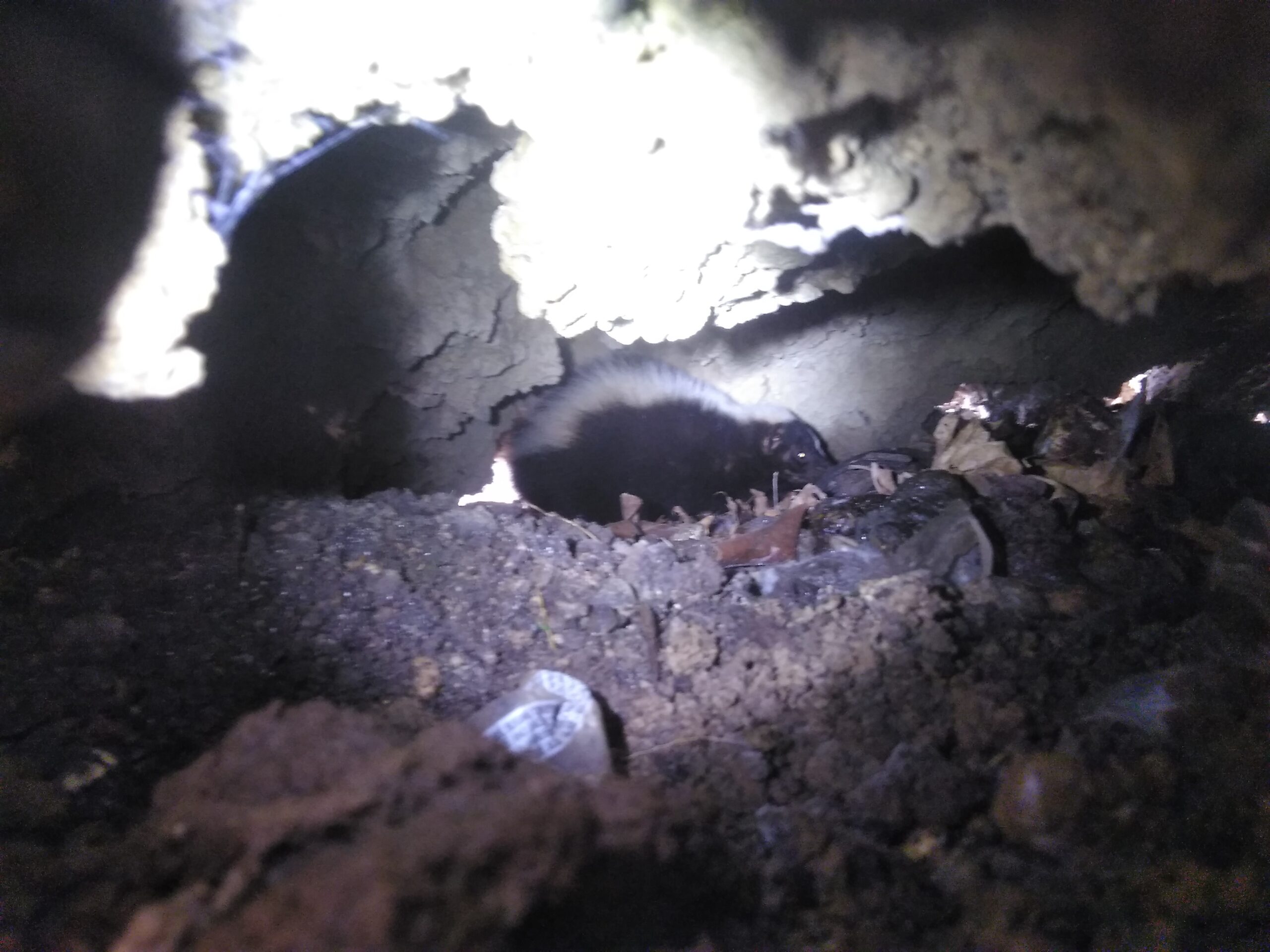Baby skunks are adorable. Small and fluffy with black eyes and noses, they will waddle around your yard, investigating everything. People love to film them, and you can find almost as many “cute baby skunk videos” on the internet as you can videos of playful puppies and kittens. Like fall leaves, these tiny black and white balls of curiosity can be seen only once per year. Are you ready, in case you are blessed with babies soon and need humane wildlife control in Rexdale?
Looking for Love
In the midst of winter, humans turn their thoughts to love. Valentine’s Day is when we shower our beloved with cards, flowers and chocolates. A month later, college students head to the beach for spring break, with hopes of meeting that special someone. February and March are romantic times for adult skunks, too. Male skunks do not like to settle down and will mate with several females. If a particular female is not interested, she may spray him as a warning to back off. This is the time of year when you might first become aware of skunks on your property.
Feathering the Nest
Once a female is expecting, she will search for a safe place to raise her babies. Skunks often dig dens beneath porches or outbuildings because they are dark, quiet and secluded. The first clues that a mother skunk has chosen your yard might be mysterious small holes in the garden where she has been digging for insects and grubs. Skunk droppings are similar to those of a house cat but not as pointed, and they may contain pieces of berries, seeds, feathers or fur.
Being Born
About the time the first spring wildflowers poke their heads up through the leaf litter, baby skunks are being born into their snug little dens. Almost all skunks have April or May birthdays, with a few late arrivals born in June. Mothers rest quietly with their four to six nearly naked infants, nursing them five to six times per day. The babies, called kits, are very delicate. They weigh only about 28 grams and require constant care. The babies sleep a lot, so you probably will not notice this unobtrusive little family.
Going Outside To Play
After four to five weeks, the babies are covered with fur and are taking their first wobbly steps. By the end of summer, they will have been weaned and will begin forays away from the den; and of course, like all babies, human and otherwise, they periodically have unpleasant smells coming from their backsides. In fall, when songbirds become restless for their migratory journeys, the little skunks also take their final steps away from their natal den to explore life in the forest.
Realizing Your Porch Is a Nursery for Baby Skunks
If at all possible, it is best to leave skunk families alone during their most vulnerable time of year. There are situations, however, when a skunk’s family is just not compatible with yours. Conflicts with pets, fear of rabies and overwhelming smells are all perfectly valid reasons for these furry neighbours to be asked respectfully to move out.
Calling the Professionals
When you call Skedaddle Wildlife, rest assured that mothers and babies will be kept together, and the whole family relocated to a more suitable location. Once removed, we will clean and deodorize the den site to discourage other skunks from moving in. Finally, we will install barriers to keep skunks or other animals from digging. You don’t have to dread baby skunk season. Sit back and enjoy the adorable baby skunks, knowing you have a good babysitter to call when you need a break.




